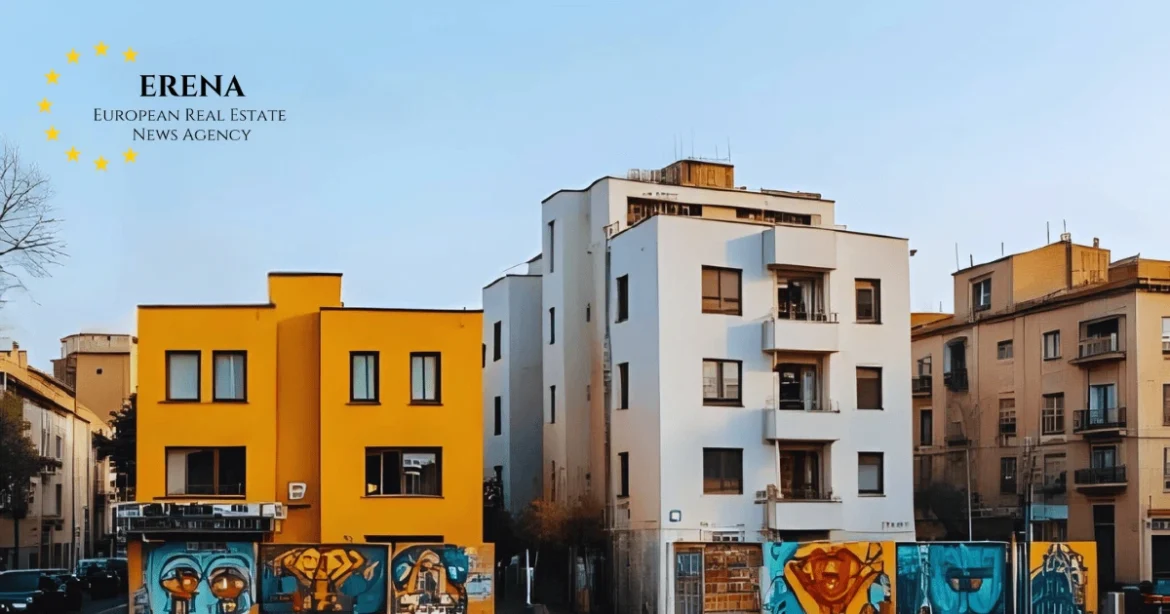Barcelona has received a loan of €113 million from the European Investment Bank aimed at the construction of over 640 social rental homes by 2030 to mitigate one of the most severe housing crises in Europe. The contract signed at the end of October 2025 covers nine sustainable developments located across several districts and aims to provide affordable housing to nearly 2,000 tenants.
A City Under Pressure
Barcelona’s housing shortage has reached critical levels. With average rents in the capital reaching €23.4 per m² and small flats renting for €1,200 to €1,500 a month, the city is becoming unaffordable for many middle-income families and service workers. The IMHAB-run, EIB-backed programme targets exactly that gap — affordable long-term homes insulated from market distortion, according to municipal officials.
According to city data, waiting lists for public housing now exceed 36,000 households, while wages have grown just 10 percent in the past five years — compared with a 40 percent rise in rental prices. Flats here — modest or otherwise — rarely rent for less than €950 a month, even in outer districts such as Nou Barris and Sant Andreu. The crisis has deepened inequality, with younger residents and single-parent households most affected.
Nine Projects Across Barcelona
Construction will begin progressively in 2026, focusing on areas such as Bon Pastor, Trinitat Nova, Casernes de Sant Andreu, and Illa Nubiola in the 22@ innovation district. All sites will meet stringent energy-efficiency and accessibility standards in line with the city’s 2030 climate-neutral objectives. Most plots are municipally owned to ensure that all completed dwellings become part of the public rental stock.
The estimated total investment is €161 million, with the EIB financing 70 percent of that amount. The remaining 30 percent will be financed through the municipal budget and Catalan housing programmes. This translates to roughly €250,000 per home, reflecting the cost of high-efficiency construction in dense urban areas.
Financing with Social Purpose
The disbursement of the EU bank loan will take place in phases according to project progress. Loans will be repayable over 30 years and will carry preferential rates linked to environmental and social performance indicators. Under the EIB’s Green Finance Framework, projects that meet energy-efficiency goals can qualify for additional interest rebates.
All homes will be let at rents up to 35 percent below market rate, with priority given to low-income families, elderly residents, and women affected by socio-economic vulnerability. According to city officials, nearly 70 percent of beneficiaries are expected to be women, many of them single parents or older adults living alone.
A Political Shift Toward Affordability
“It is a decisive step toward getting back the right to affordable housing, in a city where the right to stay is threatened,” said Jaume Collboni, Mayor of Barcelona, during the signing.
The mayor’s administration has made public housing the focus of its urban policy, aiming to triple the municipal housing stock by 2030. City Hall considers the programme a major lever to restore social balance in neighbourhoods where rents have grown faster than in any other Mediterranean city.
Nadia Calviño, President of the EIB, stressed the strategic importance of the partnership for the region.
“One out of every four euros that the EIB devotes this year to Catalonia goes to housing — that is how seriously we take this challenge,” she said, noting that affordable housing has become the top priority of the bank’s 2025–2030 social agenda.
According to Calviño, the EIB has shifted its focus from traditional infrastructure toward social inclusion. The Barcelona deal fits into the EU’s broader effort to address affordability crises that threaten social cohesion in major cities.
EIB Vice-President Ioannis Tsakiris offered a broader view of the new funding model.
“We’re helping cities innovate, build faster, and lower lifetime emissions — not just financing bricks and mortar,” said Tsakiris.
The EIB aims to link environmental policy with housing delivery, placing sustainability on the same level of importance as affordability.
From Local Challenge to European Model
“It is a structural intervention rather than a stopgap,” said Marta Vila, an urban economist at the Universitat Pompeu Fabra. She argued that the EIB loan will reshape the rental market over the long term by keeping part of the housing stock permanently outside speculative dynamics.
“Each publicly owned dwelling breaks the speculative chain,” Vila said. “That’s where real transformation begins.”
The €161 million investment will also benefit the local economy. Construction is expected to create around 2,000 temporary jobs, many of them in sustainable materials and energy-efficient technology sectors. The projects will strengthen the city’s green economy and help small contractors transition to low-carbon construction methods.
Barcelona’s plan is part of a wider European trend. Cities such as Vienna, Berlin, and Helsinki have long shown that public housing systems can coexist with private markets. Barcelona aims to adapt that model to the Mediterranean context — combining low-cost financing, strict environmental standards, and public ownership.
All new buildings will feature renewable energy systems, rooftop solar panels, and water-saving technologies. Communal areas will encourage interaction between neighbours, turning the housing projects into living communities rather than isolated estates.
Looking Ahead
Experts agree that the 640 homes will not be enough to close Barcelona’s housing gap — the city still needs more than 15,000 affordable units — but the framework provides a strong foundation for scaling future developments. The partnership ensures both financial stability and a long-term framework for sustainable housing policy.
Barcelona’s €113 million housing plan represents more than a loan. It signals a shift in how the city defines progress. Amid record rents and rising inequality, this collaboration between the municipality and Europe’s investment bank embodies a lasting commitment to sustainability, inclusion, and the right of residents to remain in the communities they helped build.

